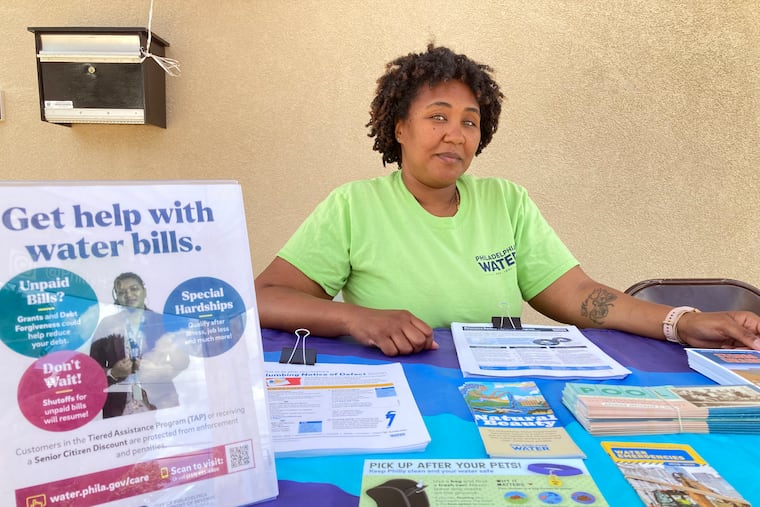Philadelphia will resume water shutoffs on May 31. Here’s what you should know.
The Philadelphia Water Department’s Raise Your Hand program helps customers at risk of losing their water service.

The Philadelphia Water Department will resume shutoffs for households after an extended winter pause that began in December, but a new initiative makes it easier for some families to keep the taps flowing.
The department normally resumes water shutoffs on April 1 but spokesperson Brian Rademaekers said it extended the deadline to work with Mayor Jim Kenney’s administration to institute additional protections for households at risk of losing water service. Accounts with $1,000 or more in past due payments are at risk of shutoff.
“The Philadelphia Water Department believes that no one should lose water because they cannot afford to pay a bill,” Rademaekers said. “With that in mind, we have strong policies and programs for vulnerable residents, including new protections this year for households with seniors, children, and others.”
This year, households with at least one child younger than 18, senior citizens older than 65, or people with disabilities can avoid shutoff.
Residents can enroll in the Water Department’s Raise Your Hand initiative, which lets department customers self-identify as a member of one of the protected groups, regardless of household income. The initiative doesn’t require enrollees to show proof of protected status.
Customers in the program will avoid shutoffs through the 2023 season, and any unpaid bills will continue to accrue.
A moratorium on residential shutoffs for nonpayment during the COVID-19 pandemic ended last summer. The department had reconnected water to more than 15,000 residences during the moratorium.
The water department says shutoff notices are down dramatically. This year, the department has sent about 5,000 such warnings.. The average before the pandemic was 70,000, Rademaekers said.
Still, advocates called the potential shutoffs a “disaster” in an opinion piece published in The Inquirer. Christina A. Roberto and Laura A. Gibson, senior health economics fellows at the University of Pennsylvania, and Robert W. Ballenger, an attorney at Community Legal Services, highlighted the water department’s request to increase monthly bills over the next two years.
The various water department assistance programs are important, they wrote, but more must be done to let qualifying customers learn about them.
Rademaekers said the department has advertised its assistance programs in “Black and brown communities often most impacted by shutoffs,” hosted weekly utility fairs, and reached out to customers at risk of water shutoffs directly by calling, texting, and knocking on doors. The department also used city data to identify people who’ve used homeless services and auto-enrolled them in shutoff protection.
In addition to the Raise Your Hand program, families can get other assistance from the department to pay their water bills and avoid shutoffs.
The city allows customers who have been notified of an impending shutoff to apply for financial assistance up to 30 days after receiving a notice. Any shutoff will remain paused until the application has been processed.
Customers can request a payment plan, which requires 25% of the delinquent bill to be paid upfront for most residential plans, though some low-income customers can qualify for smaller down payments, according to the department’s website. The full payment plan must be completed in six to 12 months.
Individuals with medical needs that require access to water can delay shutoffs by 30 days by completing a medical certification form, providing a letter that fulfills department requirements, or providing an official doctor’s note.
The department’s nationally renowned Tiered Assistance Program, or TAP, sets a household’s monthly water bill at a flat rate based on family income. Households that make below 150% of the federal poverty line, which is $41,625 for a family of four, qualify.
Additionally, the Utility Emergency Services Fund offers grants to eligible households facing shutoffs from Peco, Philadelphia Gas Works, and the water department.